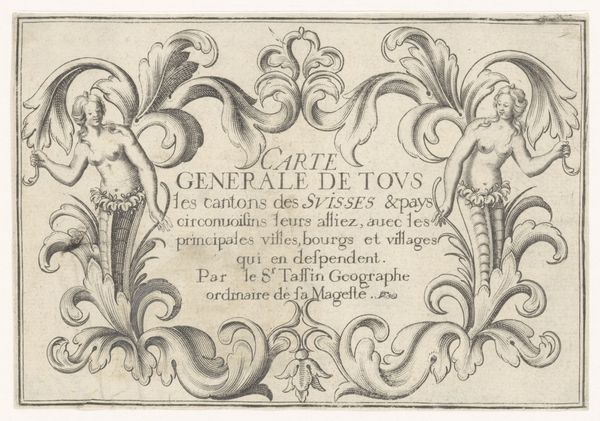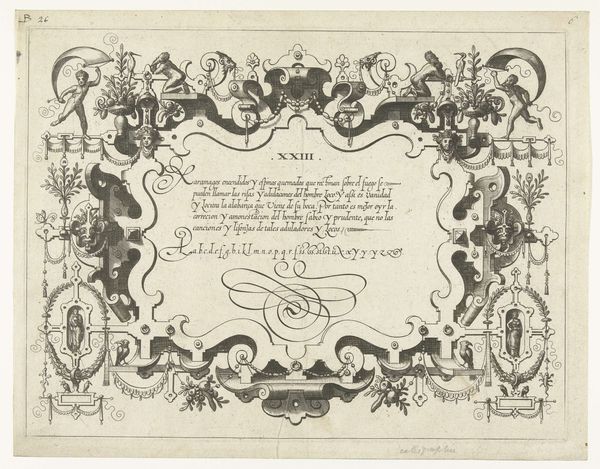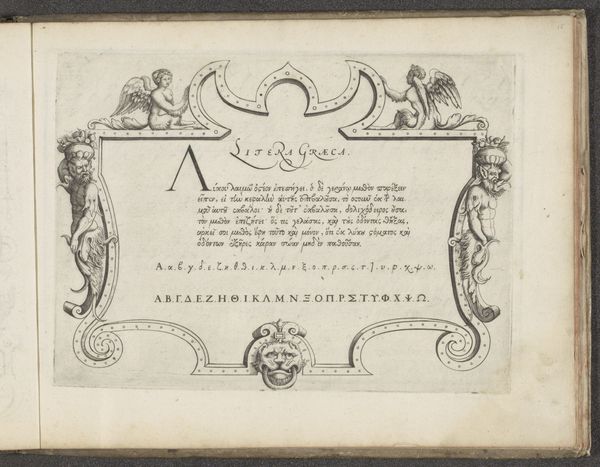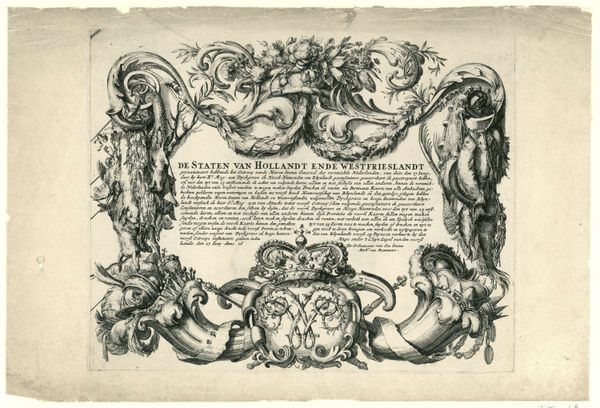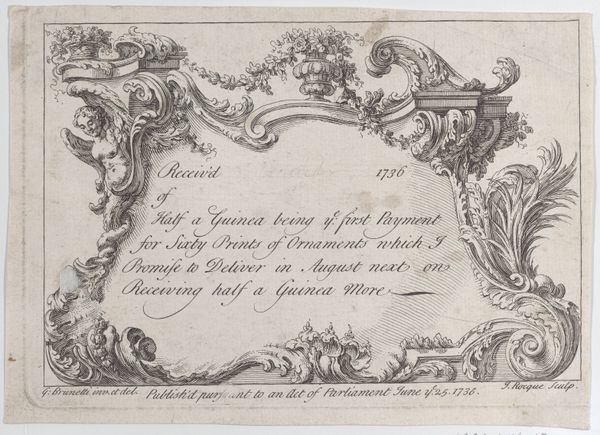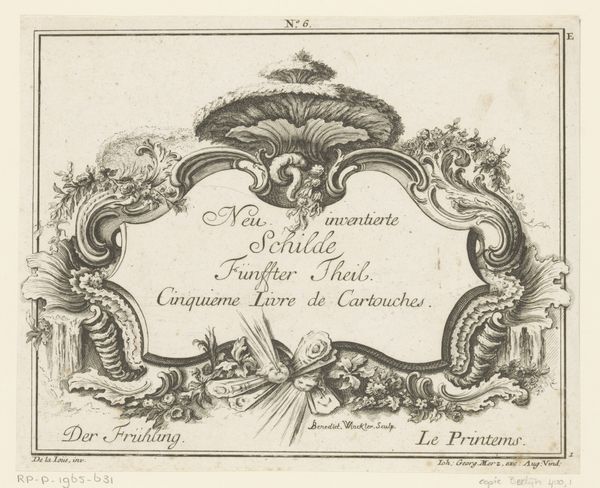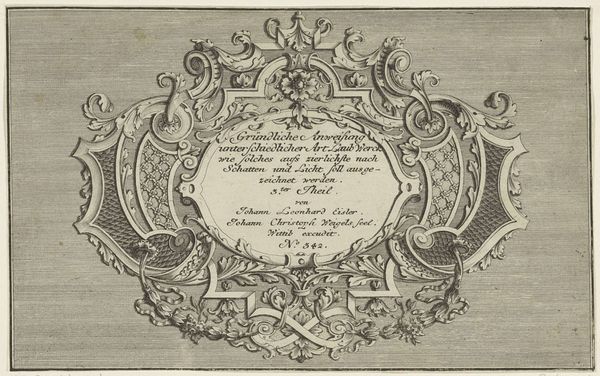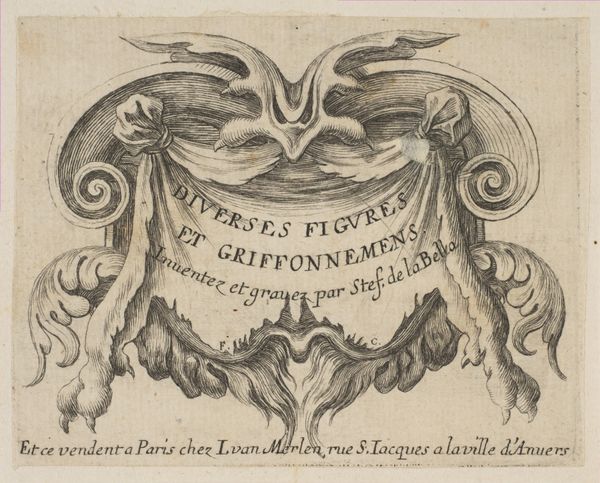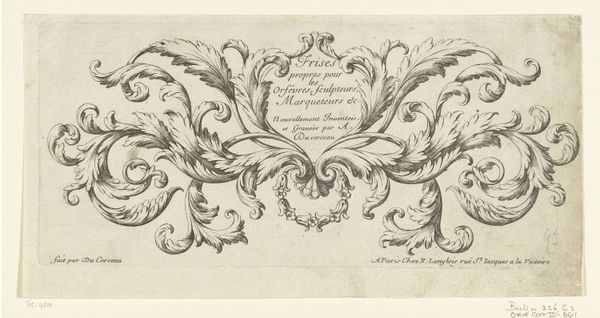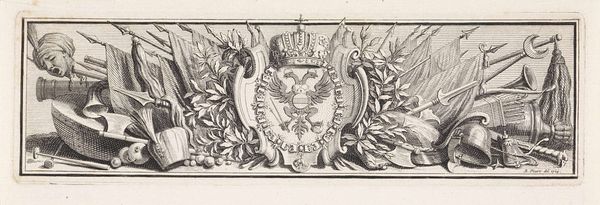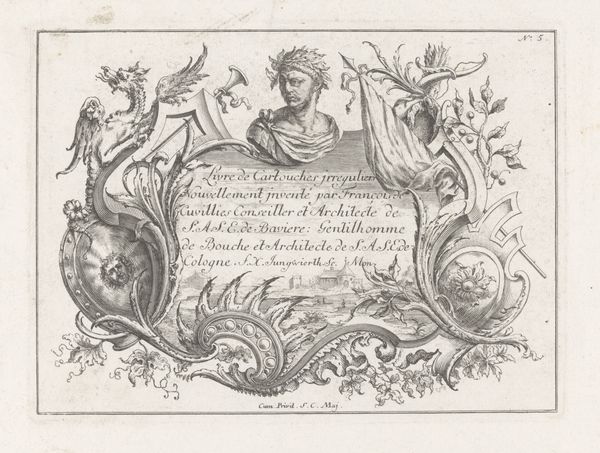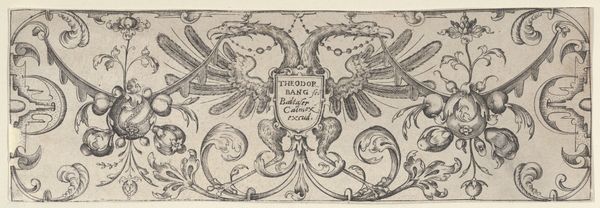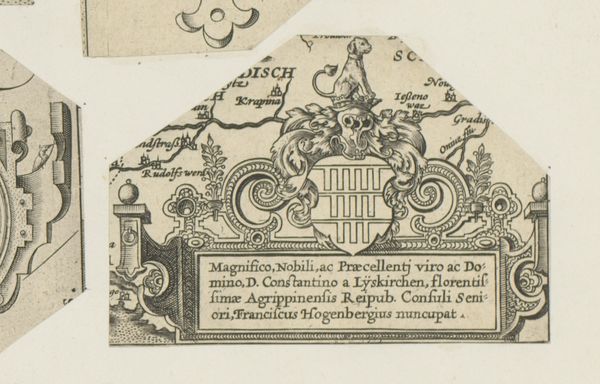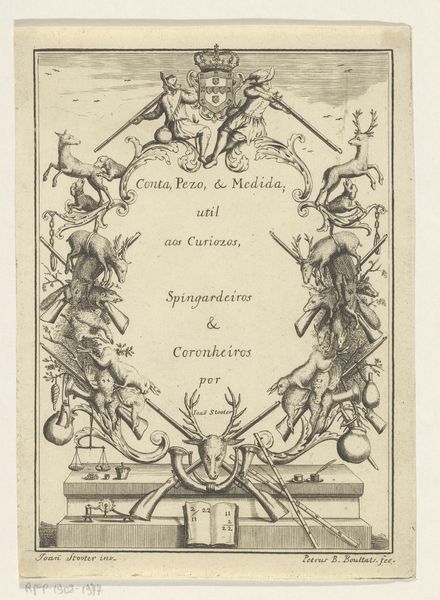
Teksten bij de voorstelling van het ongeluk van graaf Johan Maurits op de brug van Franeker, 1665 1665
0:00
0:00
print, engraving
#
baroque
#
pen drawing
# print
#
old engraving style
#
history-painting
#
engraving
Dimensions: height 173 mm, width 390 mm
Copyright: Rijks Museum: Open Domain
This engraving, made in 1665 by an anonymous artist, commemorates a mishap involving Count Johan Maurits on a bridge in Franeker. It presents two inscribed texts, framed by grotesque figures. The image creates meaning through visual codes and historical associations characteristic of the Dutch Golden Age. Franeker, a university town in Friesland, was a centre of intellectual and social life. The mishap involving Johan Maurits, a prominent figure, would have resonated deeply within this community. The engraving serves as a commentary on the transience of life, even for the high born. Was this for public information or private collection? Understanding this engraving requires a look into the social structures of 17th-century Netherlands and the role of prominent figures like Johan Maurits. Contemporary documents and archives could shed light on the circumstances surrounding the incident and its reception within Franeker society. By contextualizing this image, we uncover its deeper significance as a reflection on mortality, fame, and the social order of the time.
Comments
No comments
Be the first to comment and join the conversation on the ultimate creative platform.
